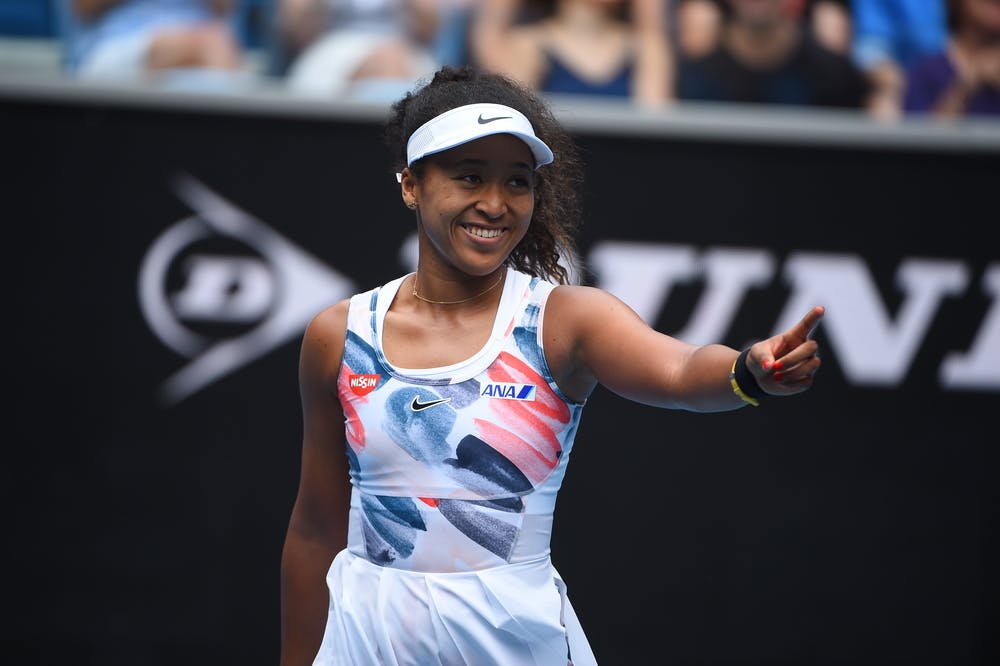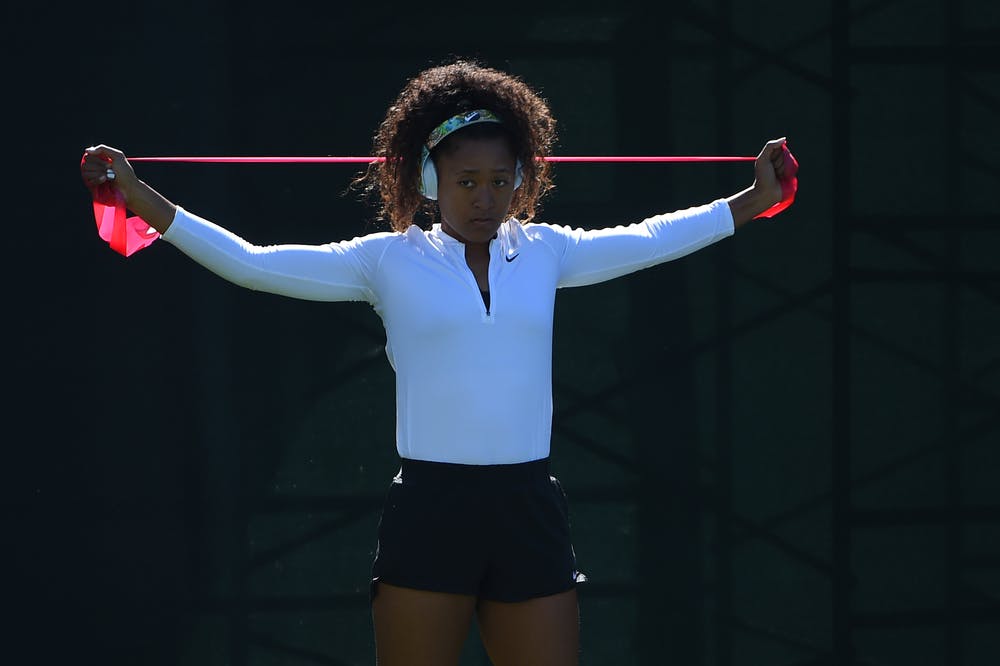It ranges from fashion lines, venturing into a recording studio, to other sporting hobbies. Outside interests for tennis stars are often labelled as a distraction, a threat to their on-court prowess.
Not for Naomi Osaka.
It’s been a difficult year across the globe but the tennis world has helped provide some distraction with special moments and special players.

It ranges from fashion lines, venturing into a recording studio, to other sporting hobbies. Outside interests for tennis stars are often labelled as a distraction, a threat to their on-court prowess.
Not for Naomi Osaka.
Activism has enriched and given a focal point to her game. “It made me stronger,” said the Japanese youngster back at the US Open. “Because I had more desire to win, because I want to show more names, and I want people to talk about it more.”
Skip back to August and the return of tennis after the six-month hiatus due to the Covid-19 pandemic. The 23-year-old was horrified by events unfolding in the United States and joined activism in the fight against racism and police brutality.
Plenty of players were unified in their outrage, but Osaka took her involvement up a few notches.
Due to play her semi-final at the relocated Western & Southern Open (in New York), Osaka initially withdrew within a widespread boycott by stars from a collection of American sports.
"I don't expect anything drastic to happen with me not playing, but if I can get a conversation started in a majority white sport I consider that a step in the right direction,” posted Osaka on social media.
"Watching the continued genocide of Black people at the hands of people is honestly making me sick to my stomach."
The tournament was suspended for a day’s play and Osaka eventually navigated her way to the final, withdrawing with a left hamstring injury (the same ailment that forced her to miss Roland-Garros).
The impact was already electric, snippets of Osaka’s words lasering around social media. Sports stars from this generation are outspoken and articulate. Osaka leads from the front.
Over to the US Open and the 2018 champion printed seven masks before the tournament, each bearing the name of a person killed as a result of police brutality or racial injustice. In the end the world No.3 was able to unveil all seven across her face with a different one used per walkout. The mission to give a voice to these victims wasn’t a distraction, it was purely motivation.
"Well, what was the message you got? The point is to make people start talking,” said the 23-year-old, using her trophy presentation interview to keep the conversation going.
Osaka certainly achieved that and plenty more.

With such a powerful message and rhetoric, Osaka was also inspired on court at Flushing Meadows.
A tricky three-set opener against compatriot Misaki Doi opened the title tilt.
From there Osaka’s game flourished, undeterred by unpredictable Ukrainian youngster Marta Kostyuk demanding a decider in the third round.
She motored past 14th seed Anett Kontaveit before navigating past seriously in form Americans Shelby Rogers and Jennifer Brady.
Standing in the way of Osaka’s third Grand Slam was the resurgent Victoria Azarenka, with her renewed perspective and all-court artillery dismissing Serena Williams earlier on.
Azarenka, a two-time Australian Open champion, scorched the opening set in 26 minutes, pouncing on the nerves of Osaka. The Japanese icon was a point away from going 0-3 down in the second set, when something clicked, snatching away the initiative with 10 of the next 12 games.
"I wasn't really thinking about winning after a certain while. I just thought, 'I came here with a goal, I'm playing in the final, a lot of people want to be in this final, so I can't lose 6-1, 6-0,’” revealed Osaka.
“I just thought it would be really embarrassing to lose this in under an hour so I just have to try as hard as I can.
“I just thought to myself to be positive, hopefully give her a slight run for her money."
That positive persona was the tonic, packing boxing-like punches off both groundstroke wings and clutch serving secured a 1-6, 6-3, 6-3 triumph.
The self-assured composure on court gave Osaka such a rounded game all fortnight in New York, the effortless power was complimented by a revolutionised backhand slice and a post-lockdown injection of pace from many miles of work. In any segment of the court, the 23-year-old looked a threat.
"I think I just got through it because during quarantine I wanted to set myself up to possibly win this tournament. I felt like I just worked so hard,” claimed Osaka following her productive lockdown.
“I would say, mentally I feel stronger. I feel fitter now. I wanted to give myself an opportunity.
“For me my life was always go-go and especially after the previous US Open (2018) that I won, I’ve never had a chance to slow down so the quarantine definitely gave me a chance to think a lot about things, what I want to accomplish, what I want people to remember me by.
“I came into these two tournaments, with that mindset. I think it definitely helped me out.”
Having achieved more history with a fortnight packed with highlight-reel worthy moments, the captivating final comeback and the spotlight over her activism, you could forgive Osaka for taking a moment to soak up the occasion.
Well, having finished post-match formalities, in a very idiosyncratic way, Osaka lay on the court and gazed up to the Flushing Meadows sky.
“I always see everyone collapse after match point, but always think ‘you may injure yourself.’ So, I wanted to do it safely,” said Osaka smiling.
“I've always wanted to see what they saw. For me, it was really an incredible moment. I'm really glad I did it.
“Hopefully the more times I win Grand Slams, I’ll be able to celebrate better.”
By finding her voice, Osaka the champion and role model, should have plenty of chances to embrace that winning feeling.